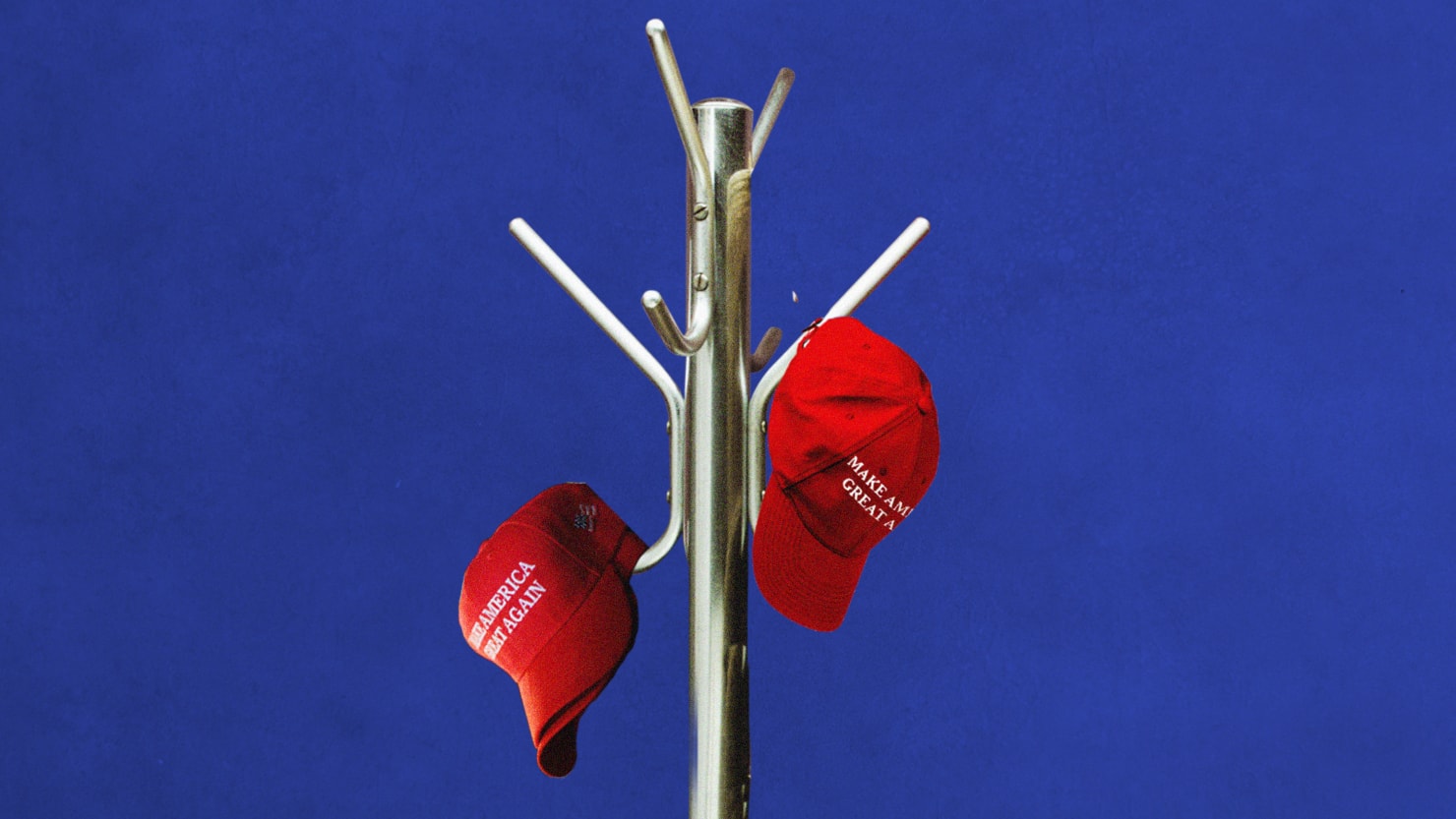It has been said that Donald Trump is more of a charismatic cult leader than a traditional politician. When it comes to trying to replace him, could it be that Ron DeSantis is, once again, taking a page from the master by trying to build his own cult following?
I’ve spent the last several days trying to understand why Ron DeSantis would announce his campaign on Twitter Spaces—and then spend his time focused on very online topics that are generally reserved for right-wing podcasts—and nothing else makes sense.
Most Americans aren’t on Twitter, and average Republican voters are presumably more interested in stemming inflation than in ESGs, bitcoin, debanking, and other insidery topics that DeSantis focused on.
So why would DeSantis craft his campaign announcement around themes that are more likely to inspire Elon Musk, Josh Hawley, or Charlie Kirk, instead of Joe Sixpack in Des Moines?
One theory suggests that it’s all about fundraising from tech bros. But there are many ways to buddy up to donors without surrendering your campaign announcement to them.
Conventional wisdom suggests DeSantis should try to reconstitute the Reagan coalition, while simultaneously winning back some erstwhile Trump supporters who might prefer a younger, less chaotic, version of Trump.
Instead, DeSantis seems committed to narrowcasting a message for his own nascent, albeit small, sliver of the right. In this case, the demographic seems to be disaffected young men who spend considerable time online.
Instead of winning the votes of every normie who has not yet drunk the MAGA Kool-Aid, DeSantis appears to be building a competing movement of his own.
This is partly based on the theory that a small cadre of intense supporters is better than a larger coalition of tepid supporters. And I suggest it is also a tacit acknowledgement that Trump’s MAGA base is already in his pocket, while there is an unrepresented base of highly educated conservative nerds out there who are still looking for a political leader.
Consider how Trump’s MAGA base differs from the one DeSantis is designing.
“The fundamental problem for DeSantis is that his competition is a much more charismatic cult leader.”
“I’m beginning to think that there is a distinction to be drawn between Donald Trump’s MAGA populism and Ron DeSantis’ institutional culture war,” conservative columnist and author Matthew Continetti observed recently on the Commentary podcast.
“Donald Trump is much more in the tradition of American populism, dating back hundreds of years,” Continetti continued. This rings true. While Trump is certainly a departure from post-World War II norms (to put it mildly), one gets the sense that a lot of his supporters are simply populists who distrust elites, oppose foreign intervention, and think public policy should be focused more on protecting the working man. From William Jennings Bryan to Mike Huckabee, there has long been a constituency (albeit, often a losing one) for this sort of politician.
Conversely, DeSantis’ goal appears to building an Orbán-esque movement of culture warriors who are clamoring for, as Continetti says, “a government that reasserts traditionalist control over America’s institutions.”
Hence, the focus of DeSantis’ campaign announcement was on topics like Disney, opposition to COVID-19 mandates, and tech censorship.
The obvious question is: Does focusing primarily on one’s political base work?
Until recently, it was widely assumed that America’s two-party system inherently forced candidates to adopt broadly popular mainstream positions to obtain the coveted 50 percent-plus-one of the vote required for victory.
This assumption led candidates to focus on mainstream topics such as inflation, while avoiding potentially offensive or divisive “niche” messages. Trump’s 2016 victory, however, negated that theory, creating a pseudo permission structure for more extreme candidates.
It turns out, there are a couple reasons why Trump’s model trumped past conventional wisdom.
First, when faced with a binary choice, even most non-Trumpy Republicans felt obliged to back Trump in the general election. This effectively means that if you can win the primary with a plurality, you are, by extension, a mainstream candidate.
Second, the way the electoral college functions means it’s possible to lose the popular vote, yet still win the presidency.
When combined, these two wrinkles in American democracy explain how someone who passionately inspires a sliver of the population can parlay that support into mainstream success.
Of course, once Trump became president, he surprised many of us again by continuing to eschew the notion that politics is a game of addition. He continued to focus on inspiring his fan base, refusing to say or do anything that might alienate them, while acting in ways that seemed sure to alienate everyone else outside of his inner circle.
Amazingly, this strategy attracted millions of new voters—albeit not enough to win his re-election in 2020—but certainly enough to make him the frontrunner again in 2024.
Even losing an election wasn’t enough to shake their faith in this charismatic strongman. Many simply believed the lie that he had actually won the 2020 election.
Normal politicians—by saying and doing mainstream things—cobble together majority coalitions that are a mile wide and an inch deep. Trump, however, prioritized loyalty and enthusiasm at the expense of a majority coalition.
It turns out, Trump’s strategy might have started a trend. Which brings us back to DeSantis, and what he’s attempting to do.
“The demographic seems to be disaffected young men who spend considerable time online.”
Does the GOP have enough room for two cult leaders?
If Trump didn’t exist, I would be much more bullish (and fearful) of the potential rise of a more competent right-wing movement. But the fundamental problem for DeSantis is that his competition is a much more charismatic cult leader.
What is more, if Trump’s base of non-college-educated, rural populists constitutes a minority of the electorate, DeSantis’ base of highly educated tech bros must be dramatically smaller.
To be sure, they punch above their weight when it comes to the internet and the conservative intellectual world. But Trump’s appeal is broader and less specific.
I keep returning to the notion that DeSantis only works as a candidate if Trump is out of the picture—which is possible, but not likely.
Regardless, DeSantis’ incipient strategy is yet another reminder that Trump already let the genie out of the bottle. American politics will never be the same, even after he’s long gone.










